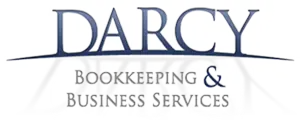


Doing the taxes for your small business or speaking to your accountant may not give a rush of pleasure at all, but it can save you for a lot of pressure in the future. By being tax-smart, you can get through the end of financial year stress-free. With the right preparation, you can minimise your tax bill, maximise the benefits from the Tax Office, and put yourself in a better position for the next financial year.
Be the best small business owner you can be! Now, let’s make every day count by using the following strategies.
If you find yourself overwhelmed and confused by piles of paperwork, it’s time to find better ways to keep your records. Thanks to advancements in technology, you can now electronically store receipts by scanning them. Or better yet, use accounting software to make life much easier. All you need are just a few clicks to send the information across to your accountant for your end of financial year tax. Organising your receipts can be tiresome, but doing it now can save you time later on.
You must keep in mind that as a small business owner, it is your obligation to keep records for 5 years in either electronic or paper form. These include:
Now that you are already keeping your records in an organised manner, you also need to review and prepare the needed documents for EOFY. The following must now be added to your checklists:
In preparation for end of financial year tax time, it is important that you keep in mind that you’re entitled to claim deductions for some expenses that are directly related to earning your income. These deductions must only be work-related, and deductions that are private or domestic are not included. You must claim the deduction in the same income year that you made the purchase. You also need to substantiate your claims with written evidence.
To maximise your tax refund each year, you can review the list of tax deductions you can claim in your specific industry. You must consider the following expenses if they are work-related and claimable for tax deduction:
You may be able to claim other deductions that were not mentioned above. As a rule of thumb, if you need to spend money to earn income, you can usually claim it—either as an immediate deduction or over time.
Don’t wait until the 30th of June to get your records up to date. Get into the habit of reconciling your bank account(s) at least once a week to avoid cramming when EOFY comes. Always keep on top of your current financial information to be able to make sound financial decisions.
Get all your administrative work done before 30th June. Some banking systems require up to three working days for funds to transfer, so financial transactions should be done in advance of the 30th. For superannuation to be deductible, it has to reach the hands of the super fund trustee by the 30th of June. The difference between paying an expense on June 30th or July 1st is an extra twelve-month wait to get the benefit of the deduction!
Moreover, it is expected that tax regulations may change all the time, that’s why it is important to be aware of any recent changes that have occurred, and if it will affect your business. If any changes took place, talk to your accountant about it and make any needed adjustments now.
The sooner you settle things with your accountant, the better. Your accountant can give you more strategies that are worth pursuing to best suit your circumstances. Ask your accountant to have a look at records to give you an idea of what your tax liability will be. Accountants assess your circumstances, goals and timeframe – and how you feel about risk – and provide specific advice to your situation, setting you up for an even more prosperous year to come.
Here are the following ways you can help to reduce tax payable. Take note that your accountant must be first consulted before proceeding with any of these tips:
The end of the financial year is an ideal time to reflect on what your company has been through and to think about the year ahead. According to Louise Biti, director of advisory firm Strategy Steps, “The 30 June deadline is not just about preparing for this year’s tax return. It is also a good time to reflect and to get ready for the coming year so that investors can gain the full advantage of the year ahead.” Biti also says that this is the time to compare the cost of life insurance, review financial goals and saving plans and set a budget.
It is a good idea to use the end of the financial year period to sit down with your accountant, review your budget and see what you can improve on or change for the next year. Planning early could get your business in an even better financial position for next year.
Yes, the EOFY tax can be a really stressful time, but not with the help of the right information and trusted bookkeepers and accountants. You only need a few weeks to do the abovementioned tasks, and after that you will no longer find yourself drowning in piles of confusing paperwork. Then you can sit back and admire your company for what it already has achieved and plan for the future so you can maximise its full potential.
